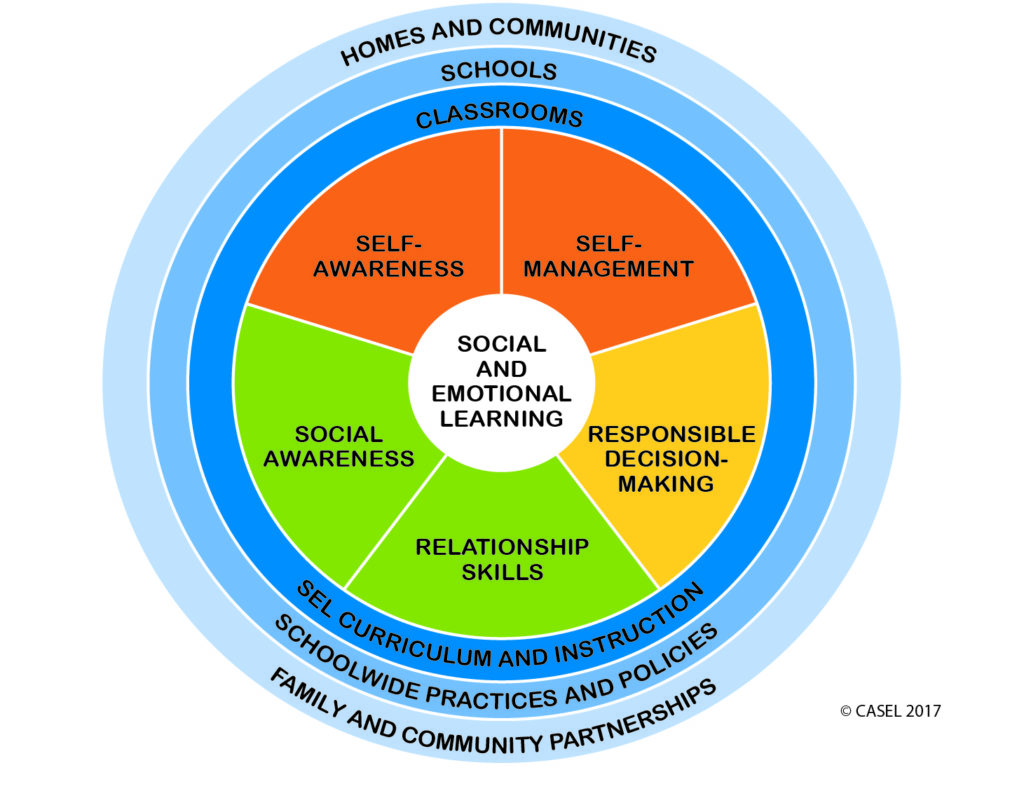For a recent Collaborative Classroom webinar series, my colleague Elizabeth English and I analyzed how teaching social-emotional competencies supports literacy acquisition (you can view the entire webinar series archive here). We dove deep into five competencies: self-awareness, self-management, social awareness, relationship skills, and responsible decision-making. In our exploration, it became clear that one thing is necessary for students to develop these five competencies in school, one thing that must be present if we are to truly engage in the process of social-emotional learning:
Every student must feel a deep sense of community within their classroom.
This sense of community must be built on trust, understanding, and communication, and it needs to exist between and among all the adults and students in that classroom.
How do we nurture that sense of community within our classrooms? Community starts with giving students the opportunity to know their classmates and to really appreciate each person as an individual. This can be accomplished in a variety of ways including:
- Offer team-building activities that allow students to learn about one another – interests, activities, aspirations. Discover interests students have in common or that might be topics for future conversations.
- Randomly pair students for team-building and partner activities to allow them to get to know and work with everyone in their classroom.
- Hold class meetings on authentic topics of interest that engage students in sharing ideas, offer opportunities for divergent thinking, and teach students how to respectfully respond to the different perspectives of others.
When students appreciate and respect the similarities and differences they share, they…
- listen to one another and learn together, knowing that they are trusted and valued members of the group (self-awareness, self-management, social awareness, relationship skills)
- build and maintain relationships in the caring community (relationship skills)
- think about and interpret their own feelings and understand how those feelings impact their actions (self-awareness)
- develop an appreciation for and understanding of others that builds empathy (social awareness)
- regulate their own emotions (self-management)
Students who know they belong and feel connected to their peers are more likely to come to school, engage in the learning, and take academic risks.
Students know they are trusted and that their participation in their learning community is deeply valued when they are given a voice—the chance to learn how to express their thinking and real opportunities to make decisions. Students can only engage in responsible decision-making if they are given the chance to do so. We need to look for opportunities for students to take the lead in their thinking. Class meetings and discussion circles are perfect opportunities for students to take ownership of their community. We can enhance student voice and responsible decision-making by:
- facilitating discussions with open-ended questions that encourage students to think deeply
- encouraging students to consider issues based on moral, personal, and ethical standards
- allowing students to take action based on their thinking and to reflect on the results of those actions
Autonomy is a powerful motivator. When they are guided in reflecting on the decisions they have made, students build self-management skills that will serve them well in both social and academic tasks.
Building an intentionally developed caring school community is plowing the field in the classroom so that the seeds of the five social-emotional competencies can be planted and take root. Collaborative Classroom’s Caring School Community program is designed to build that community through daily Morning and Closing Circles, weekly class meetings, and activities to build partnerships. As they think about social and school-life issues and better understand their own character development, students can develop life skills that allow them to collaborate effectively with others while they blossom as individuals.

